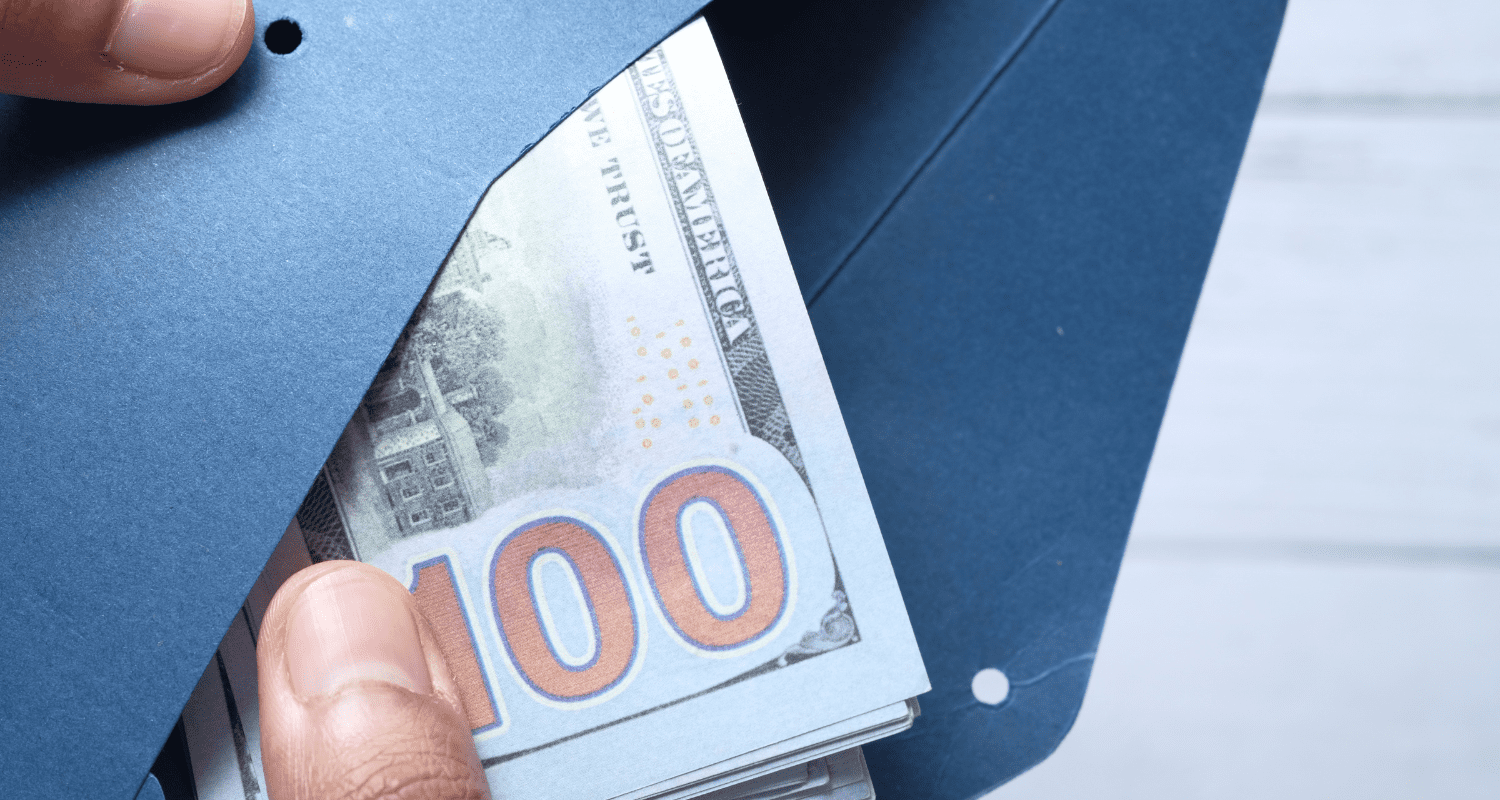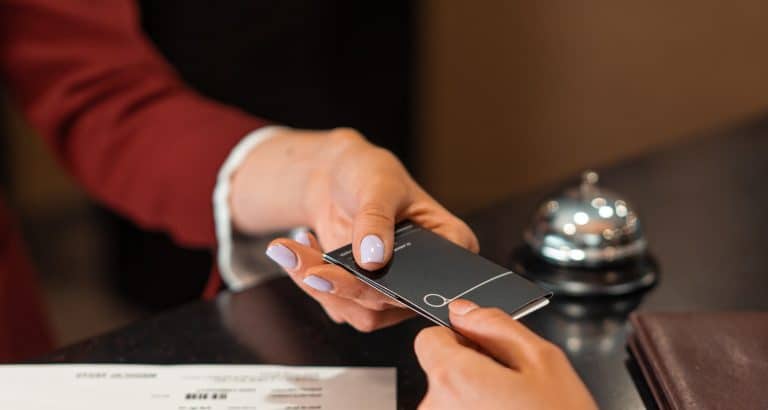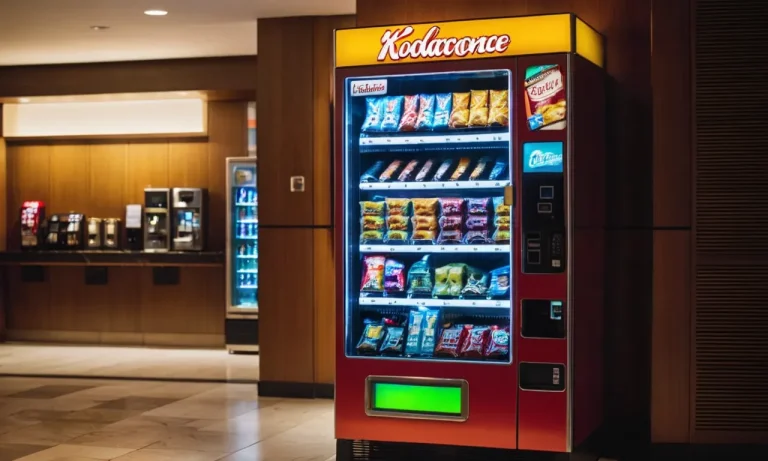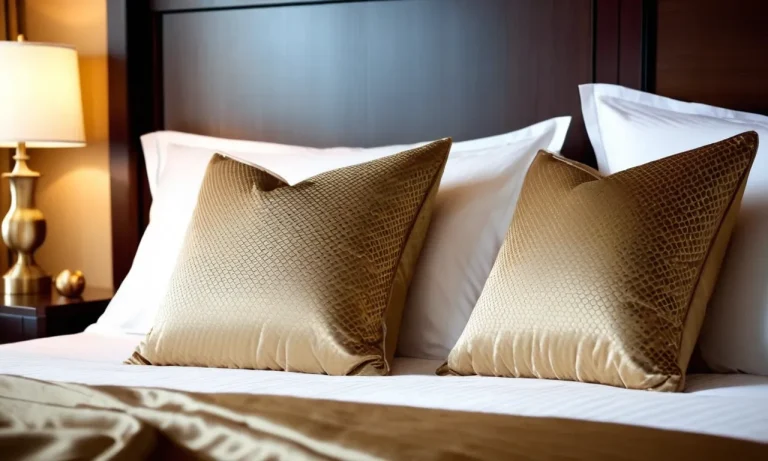Can You Pay for a Hotel in Cash? A Comprehensive Guide
In an era where digital payments have become the norm, the question of whether you can pay for a hotel in cash still lingers in the minds of many travelers. While credit cards and mobile wallets offer convenience, there are instances where cash remains a preferred or necessary mode of payment.
If you’re short on time, here’s a quick answer to your question: Yes, you can pay for a hotel in cash, but the availability of this option may vary depending on the hotel’s policies, location, and local regulations.
In this comprehensive article, we’ll delve into the nuances of paying for a hotel with cash, exploring the advantages, disadvantages, and practical considerations. We’ll also provide insights into alternative payment methods and tips for a hassle-free hotel stay.
The Pros and Cons of Paying for a Hotel in Cash
Advantages of Cash Payments
Paying for a hotel stay with cash offers several benefits that are worth considering. Firstly, it provides a sense of privacy and anonymity, as cash transactions do not leave a digital trail or require sharing personal information with the hotel.
This can be particularly appealing for travelers who value their privacy or those who prefer to keep their financial transactions discreet. 😎
Additionally, paying in cash eliminates the risk of credit card fraud or identity theft, which has become an increasing concern in today’s digital age. According to a report by Javelin Strategy & Research, identity fraud cases increased by a staggering 79% in 2020, resulting in losses of over $56 billion.
By using cash, travelers can avoid exposing their sensitive financial information and minimize the potential for fraud. 💰
Moreover, cash payments can be advantageous for travelers who have limited access to credit or debit cards, or those who prefer to manage their expenses more closely. With cash, it’s easier to keep track of your spending and stay within your budget, as you can physically see how much money you have left.
👀
- Privacy and anonymity
- Reduced risk of fraud and identity theft
- Easier budgeting and expense management
Potential Drawbacks of Cash Payments
While paying for a hotel in cash offers several benefits, there are also potential drawbacks to consider. One of the main concerns is the risk of loss or theft. Carrying large amounts of cash can make you a target for criminals, and if the money is lost or stolen, it can be challenging to recover.
Unlike credit cards, which offer protection against unauthorized charges, cash has no such safeguards. 🚨
Another potential issue is the inconvenience of carrying and handling large sums of cash. For extended stays or expensive accommodations, the amount of cash required can be substantial, making it cumbersome to transport and manage.
Additionally, some hotels may have policies or limits on cash transactions, which could restrict your ability to pay in cash or require additional documentation. 💼
Furthermore, paying in cash can limit your ability to dispute charges or request refunds in case of unsatisfactory service or other issues. With credit card payments, you have the option to file a chargeback or dispute the charges, providing an additional layer of protection.
Cash transactions, on the other hand, are generally final and non-refundable, leaving you with fewer options for recourse. 🤔
| Potential Drawbacks | Explanation |
|---|---|
| Risk of loss or theft | Carrying large amounts of cash can make you a target for criminals, and if lost or stolen, it’s difficult to recover. |
| Inconvenience | Transporting and handling large sums of cash can be cumbersome, especially for extended stays or expensive accommodations. |
| Limited dispute options | Cash transactions are generally final and non-refundable, leaving you with fewer options for recourse in case of issues or unsatisfactory service. |
Ultimately, the decision to pay for a hotel in cash depends on your personal preferences, travel circumstances, and the hotel’s policies. It’s essential to weigh the pros and cons carefully and make an informed choice that aligns with your priorities and comfort level. 🤔
Hotel Policies and Regulations Regarding Cash Payments
When it comes to paying for a hotel stay, cash has long been a popular and convenient option. However, with the advent of digital payments and evolving security concerns, many hotels have implemented specific policies and regulations surrounding cash transactions.
Understanding these guidelines is crucial for travelers who prefer or need to pay with physical currency.
Hotel Chain Policies
Major hotel chains often have company-wide policies regarding cash payments. For instance, Marriott International accepts cash for room rates and incidentals at most of its properties worldwide. However, they may require a credit card for incidental charges or impose cash limits.
Similarly, Hilton accepts cash payments but may require a credit card for incidentals or damages. It’s always advisable to check the specific policies of your chosen hotel chain before your stay.
Local and Regional Regulations
In addition to hotel chain policies, local and regional regulations can also influence cash payment acceptance. Some municipalities or states have enacted laws limiting or prohibiting cash transactions over a certain amount due to concerns about money laundering or tax evasion.
For example, the IRS requires businesses, including hotels, to report cash transactions over $10,000 to the government. Always research the local laws and regulations of your destination to ensure compliance.
International Travel Considerations
When traveling internationally, cash payment policies and regulations can vary significantly. Some countries have strict currency control measures or restrictions on the amount of cash that can be brought in or out.
Additionally, cultural norms and preferences may influence the acceptance of cash at hotels. In some regions, cash payments are still the norm, while in others, digital payments are more prevalent.
According to a 2022 survey by Statista, 48% of global travelers still preferred to pay for their hotel stays with cash. 😊 However, this figure varied widely across different regions, with travelers from Asia-Pacific (57%) being the most inclined to use cash, followed by those from the Middle East and Africa (51%), and Latin America (50%).
When planning an international trip, it’s crucial to research the specific cash payment regulations and customs of your destination country. Consulting travel advisories, local tourism boards, or contacting the hotel directly can provide valuable insights and help you prepare accordingly. 👍
Practical Considerations for Paying with Cash
Carrying Large Amounts of Cash
While paying for a hotel in cash can be convenient, it’s crucial to consider the practicalities and potential risks associated with carrying large sums of money. According to a travel safety survey, 63% of travelers prefer to carry cash for at least part of their trip expenses.
However, carrying too much cash can make you a target for theft or loss. 😬
If you plan to pay for your hotel stay with cash, it’s recommended to carry only the amount needed for your immediate expenses and secure the rest in a hotel safe or other secure location. Additionally, consider dividing your cash into separate stashes and keeping them in different locations, such as a money belt or hidden pockets, to minimize the risk of losing everything at once.
👍
Currency Exchange and Conversion Rates
When traveling to a foreign country, you’ll need to exchange your currency for the local currency to pay for your hotel stay in cash. It’s essential to be aware of the current exchange rates and to shop around for the best rates.
Don’t exchange money at the airport or hotel, as these locations often offer unfavorable rates. Instead, research reputable currency exchange services or banks before your trip, and consider ordering foreign currency in advance from your bank at home.
According to Forbes, the average exchange rate markup at airports and hotels can be as high as 15%, while reputable exchange services may charge a markup of only 1-2%. By being mindful of exchange rates and fees, you can potentially save a significant amount of money when paying for your hotel in cash.
💰
Securing Your Cash During Travel
Carrying large amounts of cash during travel can be risky, and it’s essential to take precautions to ensure the safety of your funds. Consider using a combination of secure storage options, such as a money belt, RFID-blocking wallet, or a portable safe for your hotel room.
Additionally, be cautious when handling cash in public and avoid displaying large sums of money unnecessarily.
According to Travel Insurance Review, in 2022, over $400 million in cash was reported lost or stolen by travelers worldwide. To minimize the risk of theft or loss, consider splitting your cash into smaller amounts and storing them in different secure locations.
Additionally, be aware of your surroundings and take extra precautions in crowded areas or when traveling alone. 🚨
- Carry only the cash you need for immediate expenses
- Utilize secure storage options like money belts and hotel safes
- Be cautious when handling cash in public and avoid displaying large sums
- Research currency exchange rates and fees to get the best deal
- Stay vigilant and aware of your surroundings, especially in crowded areas
By considering these practical considerations, you can enjoy the convenience of paying for your hotel in cash while minimizing the risks and ensuring a smooth and secure travel experience. Don’t let cash concerns dampen your adventure – embrace the thrill of exploring new destinations while staying financially savvy! 🎉
Alternative Payment Methods for Hotels
While cash remains a widely accepted form of payment at hotels, there are several alternative methods that offer convenience and security for travelers. These include credit and debit cards, mobile wallets and digital payments, as well as traveler’s checks and money orders.
Credit and Debit Cards
Credit and debit cards are among the most popular and widely accepted payment methods at hotels worldwide. According to a Statista survey, over 90% of hotels accept credit and debit card payments. These payment methods offer convenience, security, and the ability to earn rewards or cash back on purchases.
Major card networks like Visa, Mastercard, American Express, and Discover are accepted at most hotels.
However, it’s important to note that some hotels may place a hold on your credit or debit card for the estimated cost of your stay plus incidentals. This hold can temporarily reduce your available credit or bank balance, so it’s wise to plan accordingly.
Additionally, some hotels may charge a fee for using certain card types, especially those from overseas banks or alternative card networks.
Mobile Wallets and Digital Payments
With the rise of mobile technology and digital payments, many hotels now accept mobile wallets and other digital payment methods. Popular options include Apple Pay, Google Pay, Samsung Pay, and PayPal.
These payment methods offer a seamless and secure way to pay without carrying physical cards or cash.
According to a Statista survey, around 60% of hotels worldwide accept mobile wallets and digital payments. This percentage is expected to grow as more consumers embrace these convenient payment methods.
However, it’s always a good idea to check with your specific hotel to ensure they accept your preferred digital payment option.
Traveler’s Checks and Money Orders
While not as widely used as in the past, traveler’s checks and money orders can still be accepted at some hotels, especially for larger transactions. Traveler’s checks offer a secure way to carry funds while traveling, as they can be replaced if lost or stolen.
Money orders, on the other hand, are a type of secure payment issued by a third party, such as a bank or post office.
However, the acceptance of these payment methods may vary from hotel to hotel, and they may not be as convenient as other options. Additionally, hotels may charge a fee for accepting traveler’s checks or money orders, so it’s important to inquire about any additional costs before using these payment methods.
Regardless of your preferred payment method, it’s always a good idea to have a backup option and to check with your hotel in advance to ensure a smooth and hassle-free stay. 😊 Don’t hesitate to ask the hotel staff for clarification or assistance if you have any questions or concerns about accepted payment methods.
Tips for a Smooth Cash Payment Experience
Communicating with the Hotel in Advance
To ensure a hassle-free cash payment experience, it’s highly recommended to communicate your intentions with the hotel in advance. Many hotels have specific policies or preferences regarding cash payments, and informing them beforehand can help avoid any misunderstandings or delays during check-in.
According to a survey by HotelNewsResource.com, nearly 65% of hotels prefer to be notified in advance if guests plan to pay with cash.
When contacting the hotel, politely inquire about their cash payment policies and any requirements they may have. Some hotels may ask for a security deposit or impose a maximum limit on cash payments for security reasons.
By addressing these details ahead of time, you can ensure a smooth and efficient check-in process.
Preparing the Exact Amount
To make the cash payment process as seamless as possible, it’s crucial to have the exact amount ready. This means calculating the total cost of your stay, including any applicable taxes and fees. Hotels often appreciate guests who come prepared with the precise amount, as it simplifies the transaction and minimizes the need for change.
If you’re unsure about the total cost, don’t hesitate to reach out to the hotel and request a detailed breakdown of the charges. This will help you avoid any surprises or miscalculations. Additionally, consider carrying a small amount of extra cash to cover any unexpected incidental charges or tips. 😊
Requesting a Receipt
Regardless of the payment method, it’s always a good practice to request a receipt. A receipt serves as proof of payment and can be invaluable in case any issues or disputes arise in the future. When paying with cash, the receipt becomes even more crucial as it’s the only tangible record of the transaction.
Don’t be shy about asking for a receipt, as reputable hotels should be more than willing to provide one. In fact, according to a study by TravelAndLeisure.com, 92% of travelers consider receiving a receipt as an essential part of their hotel stay experience.
Remember, a receipt not only protects your interests but also helps maintain transparency and accountability on both sides.
Conclusion
Paying for a hotel in cash remains a viable option, albeit with certain considerations and potential limitations. While cash offers privacy and flexibility, it also comes with risks and challenges, such as carrying large amounts and navigating currency exchange rates.
Ultimately, the decision to pay with cash or opt for alternative payment methods will depend on personal preferences, travel circumstances, and the hotel’s policies. By understanding the pros and cons, practical considerations, and tips for a smooth experience, travelers can make informed choices and enjoy a hassle-free hotel stay.
Whether you choose to pay with cash or explore other payment options, it’s essential to plan ahead, communicate with the hotel, and prioritize safety and convenience throughout your travel journey.







